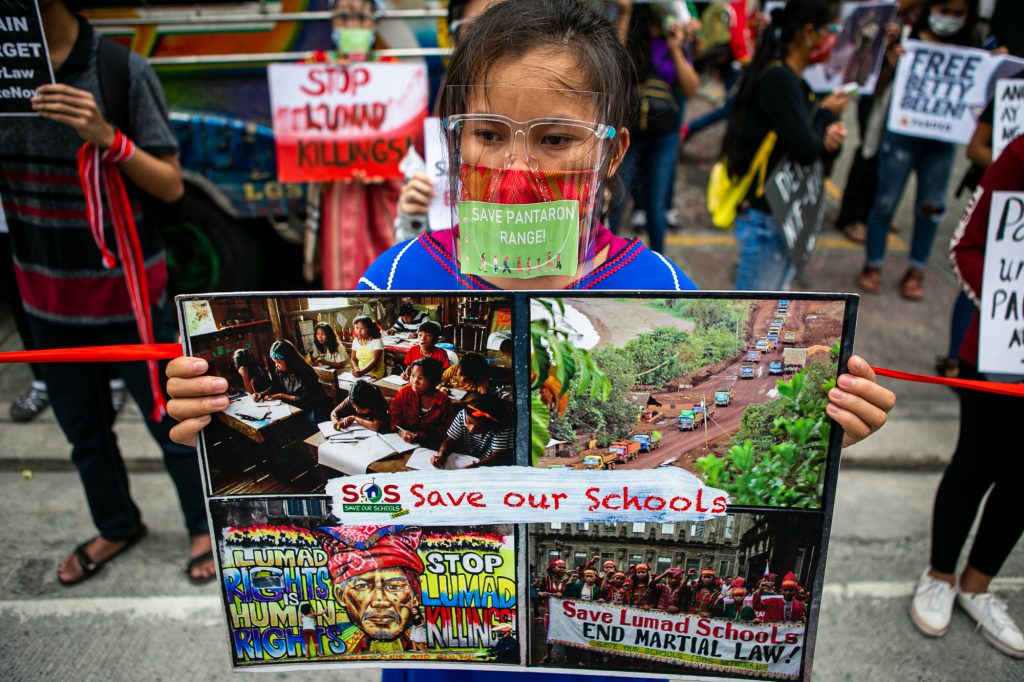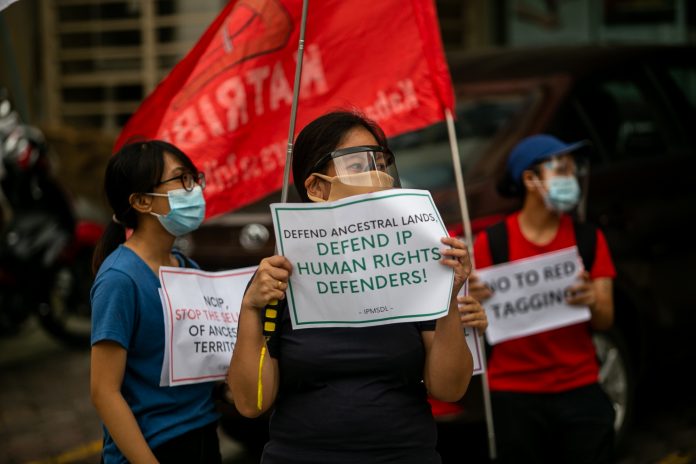Several members of the clergy in the Philippines have joined calls for the government and the Church to deliver a “solid response” in addressing the plight of indigenous peoples in the country.
The priests decried what they described as the “lack of sustained and programmatic interventions” on how to help the indigenous peoples “emerge from poverty and marginalization.”
Father Edwin Gariguez, coordinator of faith-based group Mangyan Mission, said the annual observance of the government of the National Indigenous Peoples Month “has become an empty celebration.”
“Every October, we conduct activities to celebrate the Indigenous Peoples Month but it is mere ‘tokenism.’ The practice is only a symbolic effort without concrete results,” said Father Gariguez.
The priest said many indigenous peoples’ communities across the country still experience “systematic attacks” that lead to “displacement and further marginalization.”
The National Indigenous Peoples Month is observed every October in the Philippines by virtue of Proclamation No. 1906 signed on Oct. 5, 2009, by former president Gloria Macapagal-Arroyo.
According to the proclamation, the celebration highlights Philippine indigenous peoples’ rights and the preservation of indigenous cultural communities as part of the life of the nation.
Redemptorist missionary priest Teodulo Holgado, spokesperson of the group Sandiwa, said government agencies must accompany indigenous peoples in their “fight to protect ancestral lands.”
“What’s happening is the exact opposite,” he said.
“The government, which is supposed to act as the protector, becomes the facilitator of the entry of destructive extraction projects,” added the priest.
Katribu, an indigenous peoples organization, reported that at least 230 of the 447 approved mining applications in the Philippines are in ancestral territories, encroaching into at least 542, 245 hectares of ancestral lands.
In Mindoro province, Father Gariguez claimed that the local government even plans to declare the ancestral domain of the Mangyan people “alienable and disposable.”
“This is a clear disregard of the rights of the Mangyan people,” he said.

The Catholic Church in the Philippines has earlier declared 2020 as the “Year of Ecumenism, Inter-Religious Dialogue, and Indigenous Peoples.”
But Father Raymond Montero Ambray of the Diocese of Tandag said “many churches in the country are passive to the plight of the indigenous peoples.”
The priest claimed that many priests and church workers “remain ignorant, others are even irritated, on the way the Church needs to stand for indigenous peoples’ rights.”
“We do not see concrete pastoral works on how to help the indigenous peoples against different kinds of attacks perpetrated by both the government and private sector,” he said.
“We haven’t emerged from the old domineering characteristic of the Church during the Spanish era. Many churches still try to proselytize and not to dialogue,” he said.
He said the Church must “not only acknowledge” the rights of the indigenous people but it must “take concrete actions to defend those rights.”
Father Gariguez called on Church and religious institutions to “provide more avenues” and allow the indigenous communities to participate in the celebration of the 500 years of the arrival of Christianity in the country.
“The Filipino indigenous peoples have played a huge part in the history of Christianity in the Philippines,” he said.
“They were the ones who experienced a violent era and were forced to submit to religion,” added the priest.
On October 29, indigenous and human rights groups called for the closure of the National Commission on Indigenous Peoples, which they said “does not truly represent” the voice of the indigenous peoples.
Beverly Longid of the International Indigenous Peoples Movement for Self Determination and Liberation said the agency “continues to peddle lies” to cover up the real situation in indigenous peoples’ communities.
She said the government body is only used to “facilitate the entry of destructive corporate and government projects in ancestral domains.”
Last month, the commission granted a proponent of a huge mining operation in Tampakan town, South Cotabato province, the right to extract mineral deposits in an ancestral domain.









